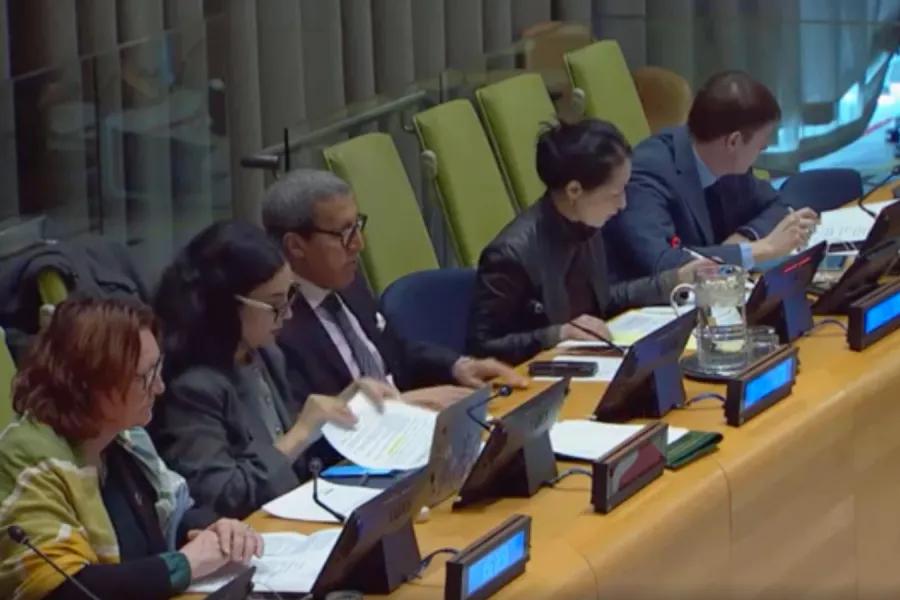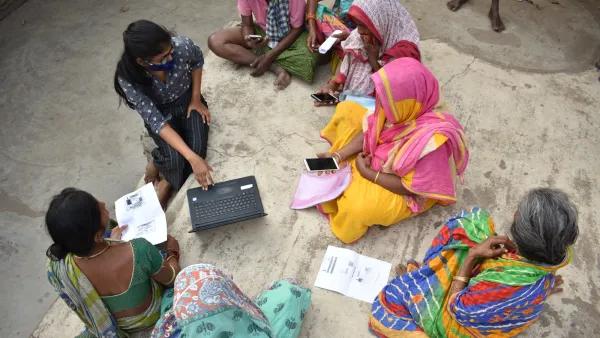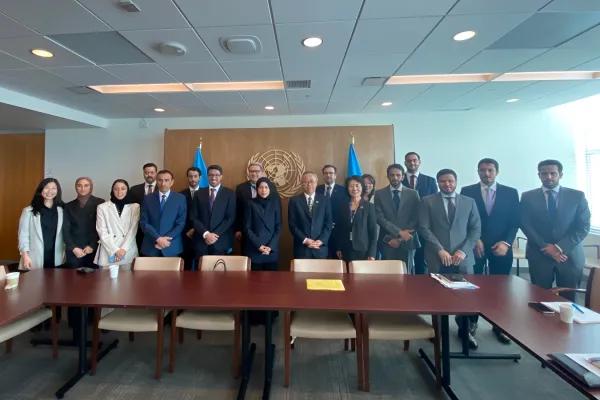Informal Consultations Advance Momentum Toward the Second World Summit for Social Development

United Nations Headquarters in New York, 28 March 2025 — Delegates from the United Nations gathered for the informal consultations on the outcome document for the upcoming Second World Summit for Social Development, set to take place in Doha, Qatar, later this year. Co-facilitated by the Permanent Representatives of Belgium and Morocco, the session marked a significant step in shaping the political declaration that will form the Summit’s key outcome.
A Foundation for Negotiations: The "Food for Thought" Paper
The consultations were anchored in a “Food for Thought” paper, prepared to pave the way toward a concise, action-oriented, and consensus-driven declaration. Based on substantive inputs from Member States, UN agencies, civil society, and stakeholders, the paper reflects the global community’s shared priorities and challenges in advancing inclusive social development.
Ambassador Hillel (Morocco) emphasized that the paper aimed to be comprehensive rather than selective, mirroring diverse inputs received. Ambassador Desmet (Belgium) reaffirmed the co-facilitators’ commitment to transparency, inclusivity, and honest brokering throughout the process.
Structure and Vision: Drafting a Forward-Looking Declaration
The co-facilitators proposed a four-part structure for the declaration:
Preamble – Articulating the vision and purpose of the Summit;
Assessment of Current Situation – Highlighting global progress and gaps since the 1995 Copenhagen Summit;
Call to Action – Outlining specific, integrated actions to accelerate implementation;
Follow-Up and Review – Proposing mechanisms for implementation and accountability.
The proposed structure was broadly welcomed, with support from many Delegates, who appreciated the format’s clarity and focus.
Core Areas for Action
The consultations reviewed 14 proposed action areas drawn from the Copenhagen Declaration and updated to reflect contemporary challenges. These include:
Poverty eradication and decent work;
Social protection and integration;
Universal access to education, health, housing, and clean water;
Gender equality and empowerment;
Migration, climate resilience, and harnessing digital technologies;
Strengthening the role of families and renewing the global social contract.
Many Member States, provided suggestions to sharpen the focus on implementation, ensure inclusivity, and better reflect realities such as aging populations, informal labor, and digital divides.
Inclusivity, Principles, and Progress
Delegates strongly reaffirmed their commitment to the three pillars of social development—poverty eradication, full employment and decent work, and social integration. Contributions called for a renewed emphasis on:
Human rights and dignity;
Multilateralism and solidarity;
Gender equality and youth empowerment;
The role of families and intergenerational solidarity.
Delegates highlighted the importance of social inclusion for displaced persons, women, and youth, while others, including Qatar, underscored the importance of broad engagement from all stakeholders, including civil society.
Review and Accountability
Regarding follow-up, participants debated the periodicity and mechanisms of review. While a five-year review cycle was proposed, some delegations favored aligning reviews with existing frameworks, such as ECOSOC and the 2030 Agenda. There was general agreement on strengthening the Commission for Social Development (CSocD) and leveraging existing UN mechanisms, including the ILO and regional commissions.
Several delegations expressed support for meaningful civil society engagement and the incorporation of data-driven monitoring, while cautioning against duplicative or burdensome new mechanisms.
Next Steps
The co-facilitators will now synthesize the feedback into a zero draft of the political declaration, expected before the end of April 2025. They also announced plans for a dedicated hearing with civil society in the coming weeks and promised a clear roadmap for the negotiations to follow.
The consultations closed with renewed optimism and shared commitment to ensuring that the Second World Summit for Social Development delivers a bold, unifying, and action-oriented vision for social justice and inclusive development in the 21st century.
 Welcome to the United Nations
Welcome to the United Nations


